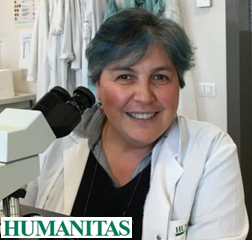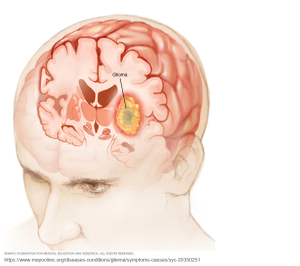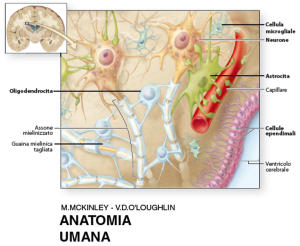No one is ever ready to receive a brain tumor diagnosis.
Yet, according to the Italian Cancer Registries Association (AIRTUM, Cancer numbers 2020), in 2020 about 6,000 people faced this difficult moment. Among these also children and adolescents, although fortunately in small numbers.
The brain is a complex and sophisticated organ that controls our vital body functions, our personality, our senses and how we move around our environment. When abnormal cells grow in the brain to develop a tumor, they disrupt its proper function and, if left untreated, the tumor grows to damage entire areas of brain tissue, resulting in disabling disease and eventually being fatal.
However, since it is a ‘delicate’ organ, it cannot be easily operated to remove the tumor as in any other part of the body.
Contrary to what one might think, brain tumors do not originate from neurons, but from highly specialized cells, the GLIAL CELLS, which are found in the brain to support the activity of neurons.
Brain tumors can be distinguished according to their degree of aggressiveness.
- Most benign tumors grow slowly, they typically have well-defined boundaries and do not spread to other tissues. In most cases, these tumors are completely removed with surgery and tend not to return.
- The most malignant tumors grow rapidly and invade the brain tissue, which is why surgery has limited weapons. When insufficient, surgery is associated with radiotherapy and chemotherapy. However, a high percentage of tumors do not respond to the therapies available and the tumors grow back. Currently, few treatment options are available to relapsing patients.
The hopes for a cure, especially for glioblastoma (the most aggressive), lie in advanced biomedical research such as nanomedicine.
One of the applications of nanotechnology in the medical field is the administration of drugs encapsulated within biodegradable nanoparticles, ten thousand times smaller than a millimeter. Nanovectors can reach specific pathological targets and release drugs only in cancer cells. For the treatment of brain tumors this represents a real turning point in the approach to the disease.
The #NEVERMIND project coordinated by the Don Gnocchi Foundation for the research of nanotechnological solutions for the treatment of glioblastoma and other brain pathologies.
 To find out more about brain tumors, visit the page of Istituto Clinico Humanitas, partner of the #NEVERMIND project, dedicated to brain tumors.
To find out more about brain tumors, visit the page of Istituto Clinico Humanitas, partner of the #NEVERMIND project, dedicated to brain tumors.
This page was created in collaboration with Dr. Lorena Passoni of Istituto Clinico Humanitas







